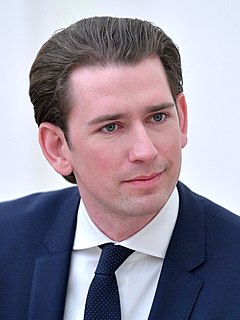A Quote by Richard N. Haass
To be sure, many of the Sykes-Picot borders reflected deals cut in Europe rather than local demographic or historical realities. But that hardly makes the Middle East unique: Most borders around the world owe their legacy less to thoughtful design or popular choice than to some mixture of violence, ambition, geography, and chance.
Related Quotes
The world I grew up in had both a literal and mythological quality. We were on the borders of several worlds - the larger black world bordered us on one side. More distantly, there was the larger white world. We interacted with some, but not others. If you think of it as an internal geography, it is a land, a contested space with these very charged historical, cultural, and emotional borders.
The world's geography is not realistic. Geography is not real. Borders are only closed to people but they are open to products. There is another type of geography outside of this matrix. Because of this we noticed we were talking about much more than just Latin America. That was very important to put the film on another level. Based on this idea, we knew that we were not in this world any longer.
After the allied victory of 1918, at the end of my father's war, the victors divided up the lands of their former enemies. In the space of just seventeen months, they created the borders of Northern Ireland, Yugoslavia and most of the Middle East. And I have spent my entire career — in Belfast and Sarajevo, in Beirut and Baghdad — watching the people within those borders burn.
In 2003, at the time I made my "Old Europe" comment, the center of gravity in NATO and Europe had long since shifted to the East. With the former Warsaw Pact countries joining NATO, the alliance has a different mix today. Some people were sensitive about my comment because they thought it was a pejorative way of highlighting demographic realities. Apparently they felt it pointed a white light at a weakness in Europe - an aging population. Europe has come some distance since World War II in becoming Europe.
Arthur Jay Klinghoffer, a professor of political science at Rutgers University, has argued that geography seems less relevant than ever in a world where nonstate actors -- malleable entities like ethnicities, for example -- are as powerful and important as the ones with governments and borders. Where on a map can you point to al-Qaeda? Or Google, or Wal-Mart? Everywhere and nowhere.
We in Austria have always had lots of immigration. But when one starts, as happened in Europe last year, to open the borders and to transport people northwards as fast as possible, then of course it's not just Syrians who come. People from all around the world then see their chance to quickly come to Europe.
Since it took up office, the Commission which I lead has pursued a clear policy: we need less interference from Brussels when it comes to the things that Member States can deal with better on their own. That is why we no longer regulate oil cans or showerheads, but concentrate instead on what we can do better together rather than alone - such as tackling the refugee crisis or securing our external borders. Only in that way can we make people feel that Europe makes a tangible difference.
The character truest to itself becomes eccentric rather than immovably centered, as Emerson defined the noble character of the hero. At the edge, the certainty of borders gives way. We are more subject to invasions, less able to mobilize defenses, less sure of who we really are, even as we may be perceived by others as a person of character. The dislocation of self from center to indefinite edge merges us more with the world, so that we can feel blest by everything.
We should have absolute control over our borders. If we want cheap labor to depress wages and disempower the unions, then we could have guest workers. But we have to face that issue. What is it that we want to do? Rather than not facing it, and having porous borders, and the effect is that it disempowers the unions.







































